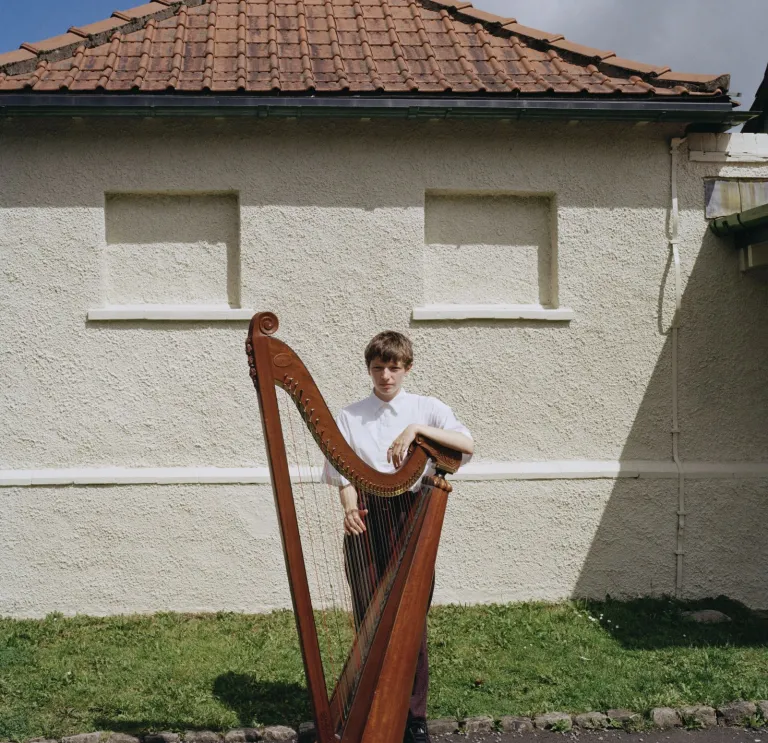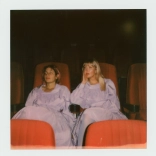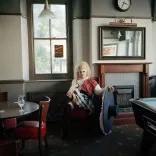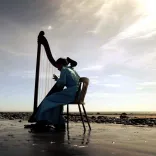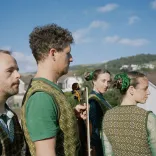People who haven’t lived in places like Machynlleth wouldn’t associate it with any sort of diversity. But actually there are so many different types of people. The farmers are all Welsh-speaking. Then you have the ‘town’ Welsh. And we’ve got hippies because of the Centre for Alternative Technology.
Cerys HafanaSomeone once said that they thought my music was perfect for listening to while doing the washing up, crying, and looking out of the kitchen window at some rainy Welsh hills. Yes, I thought it was funny. And yes, it did resonate!
Growing up, it was an interesting experience. My family moved here because of the renewable energy thing, so we were English hippies in that respect. But my mum‘s family is Welsh and I went to the Welsh-medium school. I feel lucky that I had a foot in both worlds.
Is there a creative conflict between them? I think so. It’s a big part of who I am, and the type of music I make. I feel like I’m existing at a fissure of some sort. I’m part of the English-speaking incomer crowd but then I play the Welshest instrument you could possibly find – the triple harp.
You’re always going to feel a little bit of an outsider if you fit into multiple camps. And that’s a good place to be creatively. Because you don’t grow up feeling the need to conform. I had to give up on that quite early on, and that’s been good for me in the long run.
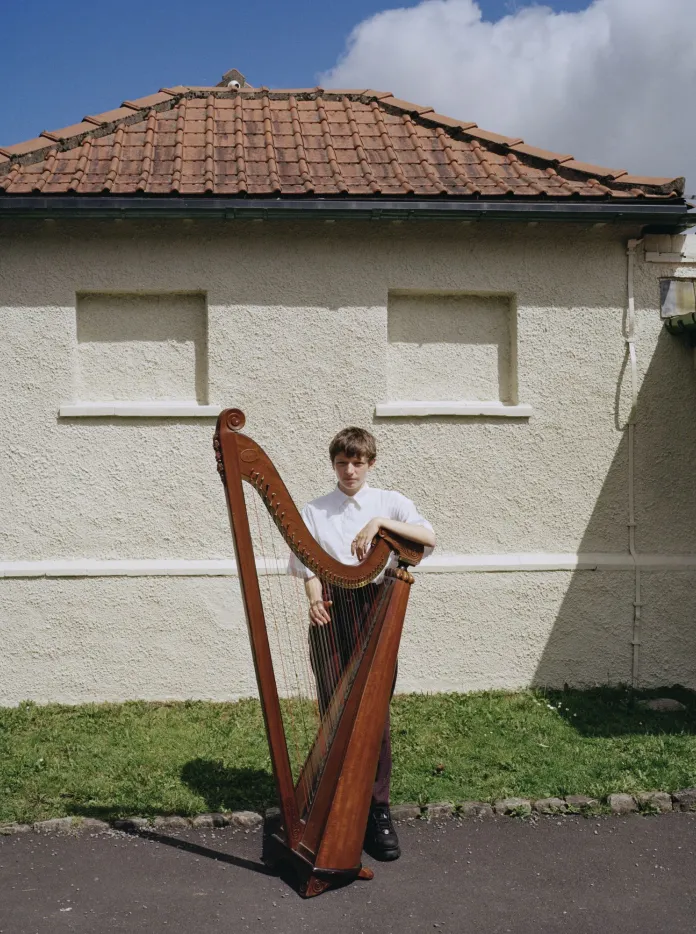
I started writing music when I was quite young because the triple harp doesn’t have as much available repertoire as the piano, for example. So there comes a point where you think, ‘I’m going to have to start making my own stuff up or I’ll get bored.’
Someone once said that they thought my music was perfect for listening to while doing the washing up, crying, and looking out of the kitchen window at some rainy Welsh hills. Yes, I thought it was funny. And yes, it did resonate!
I’ve enjoyed playing with wistfulness: thinking about what might sound Welsh, but in a slightly more abstract way. And I definitely think that wistfulness and melancholy is part of that. There’s a thing in Welsh folk music that all the saddest songs are in major keys.
I’ve enjoyed making music videos, too. I found it fun as a way of trying to open up the songs, because most of them are either in Welsh - and a lot of my audience don’t speak Welsh - or they’re in weird old English. They can feel a bit impenetrable. We think of ways to tell the story visually, which makes them more accessible. Well, that’s the plan. But I have made lots of videos and people have gone, ‘That’s the weirdest thing I’ve ever seen…’
The power of stillness? That’s the first thing that made me enjoy performing: sensing that I could make a room completely silent and knowing that you’re in control of that silence. That’s why I like performing my own music. I’m comfortable enough playing the harp on stage. There aren’t too many nerves. Which means I can really relax into it and respond to how the audience is listening.
Over the last few years I’ve been doing some bigger festivals. WOMAD was one of the biggest crowds I’ve played to. The challenge of getting hundreds of people, who are stood at a festival outdoors in the daytime, to be as quiet as they can possibly be, while you’re trapped behind a harp… that’s the thrill of it.
More:
